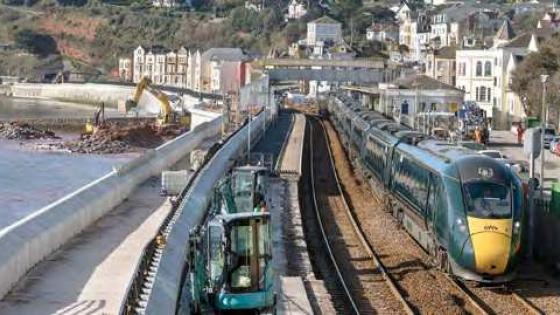
Despite talks between the RMT union, Network Rail and 13 train operating companies, 21 June saw workers go out on strike in what may yet turn out to be a protracted dispute.
It is early days, but some things are becoming clear. The RMT has, without any doubt played its hand extremely well and consistently. The Government, by contrast, has not, with a scattergun approach to the dispute which thus far has not really landed a punch on the union.
The messaging from the RMT has been consistent and logical, emphasising that it believes all workers deserve a pay rise, that strikes are a last resort, and that its members are concerned about pay, job security and changes to their contracts. The Government is painted as uncaring and disengaged, preventing a breakthrough in talks.
The Government, meanwhile, has predictably tried to paint the RMT as a throwback to the 1970s, resistant to change and willing to wreak havoc on ordinary people’s lives to try and secure an above inflation pay rise.
Caught walking an unenviable tightrope between the two sides are Network Rail and train operators, seeking to communicate the undoubted need for modernisation, trying to let passengers know where they can and can’t travel, and not overly upsetting their Governmental paymasters or staff.
Few surprises?
So far, then, there should be few surprises in what many (including Modern Railways) expected to be a good old-fashioned scrap between the unions and the Government. However, this dispute feels rather different in these early skirmishes, for three main reasons.
Firstly, Mick Lynch, the RMT’s General Secretary, has been visible and accessible to media, acting as a lightning rod where necessary and answering questions ranging from the sensible to the ridiculous with an approach which comes across as honest, straight talking and assured. His near omnipresence on television screens and news channels has ensured the RMT at least has had a chance to get its message across. Increasingly, it seems, at least some of that message is getting through, with questioning turning to matters of detail rather than principle.
Secondly, to judge from vox pops undertaken by television and radio stations during and ahead of the first strike on 21 June, the public’s reaction may be rather more supportive than many (again including Modern Railways) expected. A majority seemed to understand the reasons for the strikes even if they didn’t necessarily agree with them. This will have come as an uncomfortable surprise to the Government and an extremely welcome one to the RMT.
Third is the Government’s response and approach. Transport Secretary Grant Shapps is normally an assured performer able to convey a position well. Unusually for him, the messaging seems to be confused, with (pre-strikes) him urging workers not to walk out, but then saying the railways were fighting for survival and warning that if staff did go on strike they might be doing themselves out of a job. Since then, it turns out that Network Rail is planning to cull around 1,800 maintenance jobs, and that far from being trades union scaremongering, all ticket offices in England could be under threat of closure. Both would appear to legitimise the RMT’s concerns over job losses and security even if they are obtained without compulsory redundancies or detriment to passengers. The devil will, as ever, be in the detail.
Free speech?
The RMT claims the Government is refusing to give Network Rail and the Train Operating Companies (TOCs) the freedom to negotiate with it: the Government has said it is a matter for the TOCs and NR to resolve. With Mr Shapps having right of approval over many pay settlements on TOCs, this is not a credible position for the Government to adopt. Either it must engage with the talks directly or give NR and the TOCs the freedom to pull together a possible deal.
So, on the second day of the strikes, the RMT has made much of the running so far and will be pleased with the public reaction. However, unless and until the Government lets NR and the TOCs off the leash to settle, a resolution seems unlikely in this first week of action.
What comes next? A costed set of proposals by the RMT to generate pay rise-funding savings and a better railway for taxpayers and passengers would put the Government in an extremely awkward position. Full details of the efficiency savings NR and the TOCs believe possible through technology and changes to working practices, meanwhile, could put the RMT under the microscope.
Nobody can say how long this dispute will run or how long public sympathy for rail staff will last. If we’ve learned one thing over the week so far though, it is to be prepared for more surprises from the RMT and Government.
